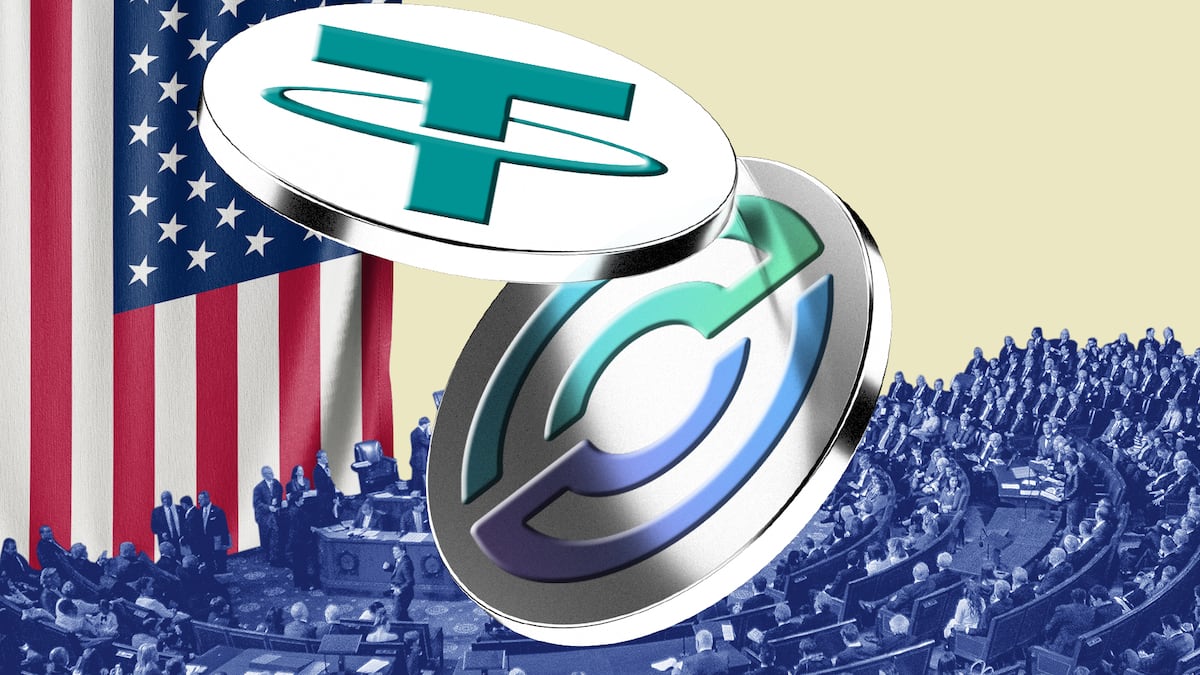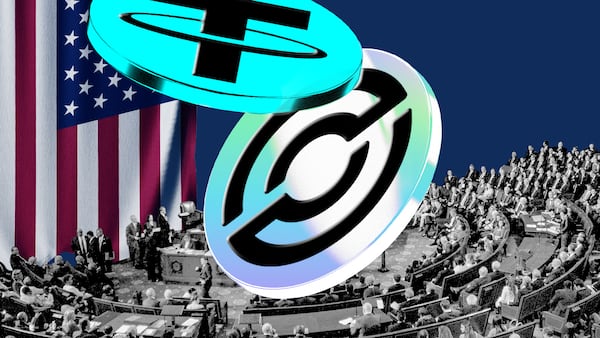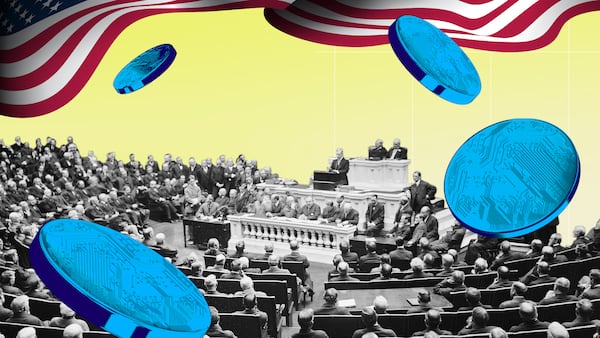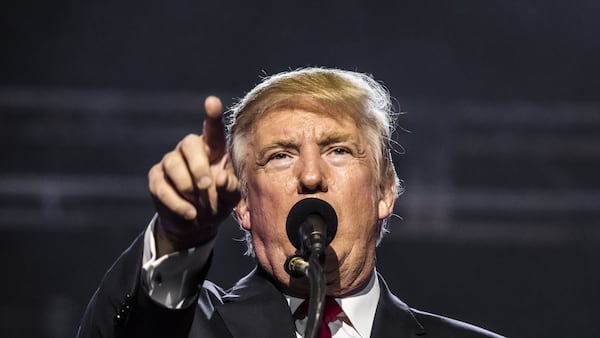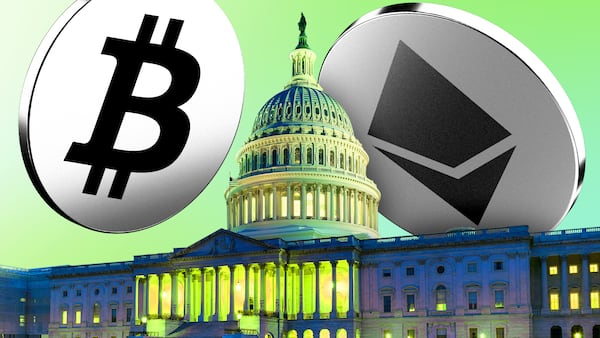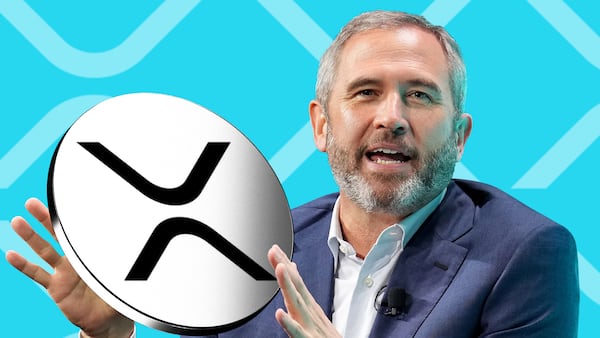- President Donald Trump signed the Genius Act on Friday.
- It is the first major crypto bill to become law in the US.
- It paves the way for some of the world's largest companies to begin issuing their own stablecoins.
US President Donald Trump signed the Genius Act on Friday, paving the way for the world’s largest financial institutions to issue their own stablecoins.
The Genius Act is the first crypto bill signed into law in the US. It is also the first of two major crypto bills the president has urged Congress to pass this year.
The other, a so-called market structure bill known as the Clarity Act, passed the House of Representatives with significant bipartisan support on Thursday. It now heads to the Senate, where lawmakers can suggest changes or file their own market structure legislation.
But the Genius Act fared even better, with nearly one out of every three “yes” votes coming from House Democrats.
“This is not just, ‘Republicans control Congress, and so they’re doing this,’” John McCarthy, general counsel at Morpho, told DL News.
“These bills are passing with broad, bipartisan support. But with a whole lot more support than I think anybody was expecting.”
The president, who has made crypto one of the legislative priorities of his second term, took a victory lap on Friday.
“It’s a very important act, the Genius Act. They named it after me,” he said.
“This afternoon we take a giant step to cement American dominance of global finance and crypto technology.”
Several crypto executives attended the bill’s signing, including Tyler and Cameron Winklevoss, the co-founders of Gemini; Jeremy Allaire, the CEO of Circle; Brian Armstrong, the CEO of Coinbase; and Paolo Ardoino, the CEO of the world’s largest stablecoin issuer, Tether.
“The passage of the GENIUS Act represents an important step toward establishing a clear regulatory foundation for the digital asset industry in the United States,” Ardoino said in a statement.
“Stablecoins have become essential infrastructure in global markets, powering dollar access, enhancing cross-border settlements, and strengthening financial resilience.”
What’s in the bill?
Stablecoins are crypto assets designed to hold a fixed value over time. The vast majority are pegged to the US dollar and backed by US Treasuries.
The market value of all stablecoins has grown more than 59% over the past year to $260 billion, according to DefiLlama data.
The Genius Act sets rules and regulations for the issuers of US dollar-backed stablecoins. And that means some of the world’s largest companies can get in the game.
“They need to have certainty around how, in this case, the asset they’re going to issue will be treated,” McCarthy said.
“Prior to this, it wasn’t even clear that a stablecoin is not a security. … It was too big a risk for almost all of the large financial institutions.”
The law permits banks and other entities to issue stablecoins, provided they meet specific requirements.
That includes backing the stablecoins with highly liquid assets such as US Treasuries, providing monthly disclosure of their reserves, and retaining the ability to freeze tokens at the request of law enforcement.
Matt Hougan, the chief investment officer at crypto firm Bitwise, has predicted approval of the Genius Act will trigger a 10-fold spike in the stablecoin market.
“Close your eyes and imagine a world where JPMorgan and Bank of America issue stablecoins, where Amazon gives you a 2% discount if you buy using stablecoins instead of Visa, and where it’s as common to accept stablecoins as it is to accept Venmo or PayPal,” he wrote in May.
Executives at Bank of America, Citigroup, and JPMorgan Chase have said their banks are considering issuing stablecoins, Reuters reported this week.
Last month, The Wall Street Journal reported Walmart and Amazon were exploring issuing their own stablecoins, and Fortune reported Apple, X, AirBnb, and Google were considering integrating stablecoins into their platforms.
Lingering concerns
The Genius Act addressed the biggest issue facing stablecoins, according to Jennifer Schulp, director of financial regulation studies at the libertarian Cato Institute: the possibility that they lose their peg to the US dollar, leaving investors underwater.
“Average consumers and people may end up benefiting from stablecoins regardless of whether they themselves are using them, because it might drive competition in the payment space,” she told DL News.
But the bill has its flaws, she said.
“It goes beyond those simple risk mitigation measures and treats stablecoin issuers a bit more like banks than I would appreciate,” she said.
On the other side of the ideological spectrum, many Congressional Democrats said the Genius Act doesn’t go far enough when it comes to protecting consumers or limiting stablecoins’ appeal to cybercriminals.
Despite the Genius Act’s strong bipartisan showing on Thursday, most House Democrats voted against the bill.
The Genius Act “ties stablecoins into our financial system, but without the safeguards that are required by banks and investment companies,” Representative Sean Casten, a Democrat from Illinois, said Thursday.
“It allows issuers to cherry pick the lightest-touch regulator between the federal government and any of the 50 states.”
He also cited an issue raised by Georgetown Law professor Adam Levitin, who recently argued the law is “subsidising stablecoin issuance on the back of bank deposits.”
While the law is expected to benefit traditional financial institutions, it could give decentralised finance a boost as well.
“It’s going to increase liquidity across DeFi platforms and reinforce their value proposition as reliable financial infrastructure,” McCarthy said.
“We see an increasing number of people who, rather than go to a bank or somewhere else to lend their money, are doing it through DeFi. And the big blocker to that is always liquidity.”
Aleks Gilbert is DL News’ New York-based DeFi correspondent. You can reach him at aleks@dlnews.com.


